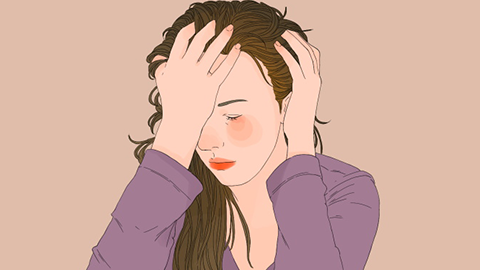What causes irritability, anxiety, and easy agitation?
Generally, irritability, anxiety, and quick temper may be caused by neurotransmitter imbalances, accumulated stress overload, neurasthenia, anxiety disorders, hyperthyroidism, and other conditions. It is recommended to seek medical attention promptly, identify the underlying cause, and receive symptomatic treatment under a doctor's guidance. Specific analysis is as follows:

1. Neurotransmitter Imbalance: Abnormal secretion of serotonin and dopamine affects the brain's emotional regulation center, leading to mood swings. Maintain regular meals, consume more nutrient-rich foods such as nuts and bananas, and practice 15 minutes of deep breathing daily to help stabilize neurotransmitter levels.
2. Stress Accumulation and Overload: Prolonged life or work pressure that is not released in time can gradually trigger emotional outbursts. Set aside dedicated time each day for exercises such as jogging or yoga, or use journaling to identify and process stressors, thereby gradually reducing psychological burden.
3. Neurasthenia: Chronic mental tension leads to heightened nerve excitability and fatigue, manifesting as irritability and anxiety. Patients may take medications such as oryzanol tablets, vitamin B1 tablets, or diazepam tablets as prescribed, while ensuring sufficient sleep and avoiding staying up late.
4. Anxiety Disorder: Characterized primarily by persistent excessive worry, accompanied by restlessness and irritability. Medications such as paroxetine hydrochloride tablets, tandospirone citrate capsules, or lorazepam tablets should be taken as directed by a physician, along with cognitive behavioral therapy.
5. Hyperthyroidism: Excessive secretion of thyroid hormones accelerates metabolism and overstimulates the sympathetic nervous system, causing emotional excitement and irritability. Symptoms can be managed with medications such as methimazole tablets, propylthiouracil tablets, or metoprolol tartrate tablets, as prescribed by a doctor.
In daily life, avoid excessive consumption of stimulating beverages such as coffee and strong tea. Communicate and share feelings regularly with family and friends, and cultivate calming hobbies such as painting or gardening. Maintain a regular作息 (daily routine), avoid overexertion, and keep both body and mind relaxed.





